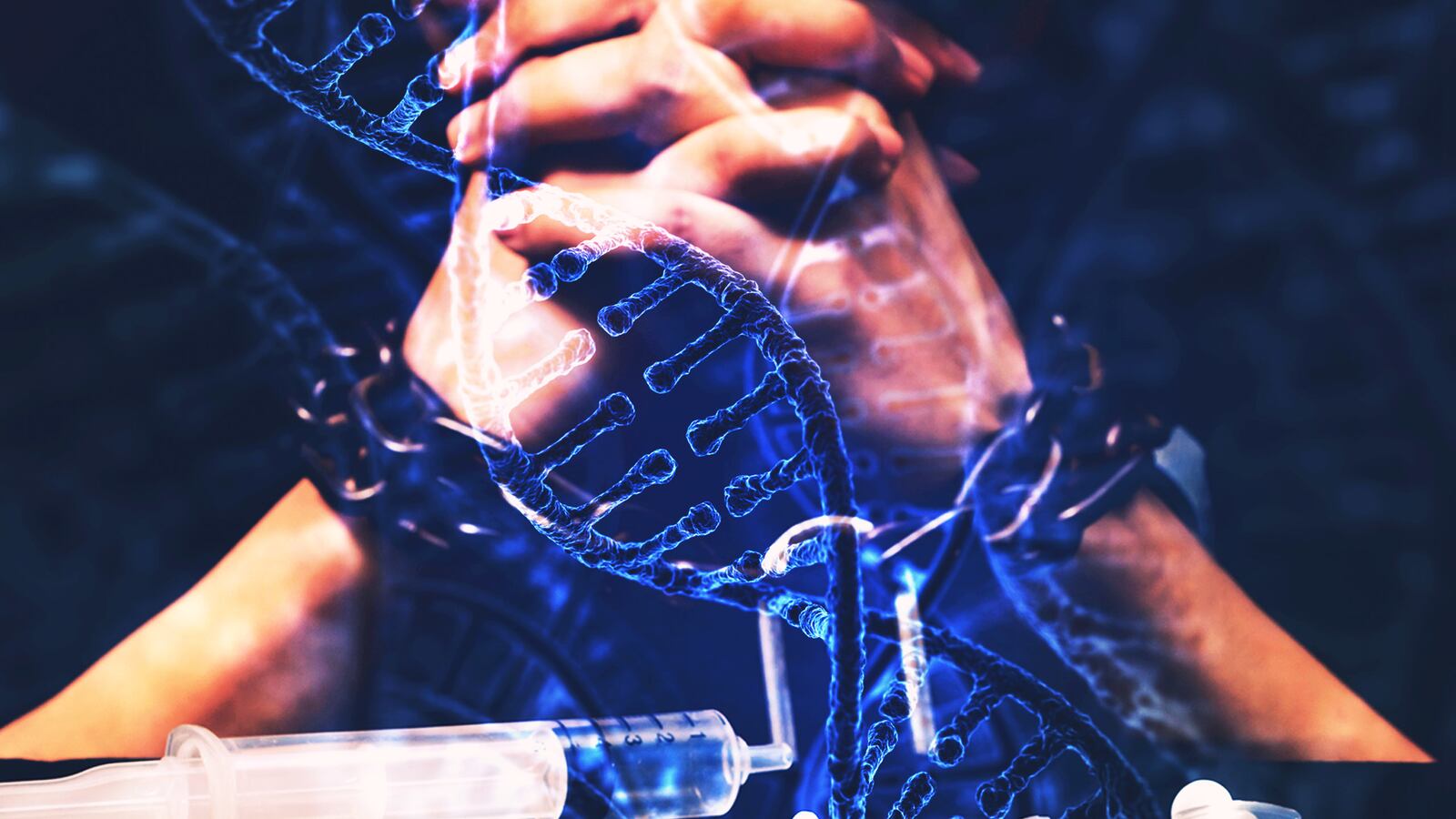“Right this minute I’m detoxing like hell,” James, an opioid user, said. On top of feeling fatigued but unable to sleep, his weakened muscles are draped in a relentless ache. These are the unbearable symptoms of withdrawal.
James was run over by a city bus in Cleveland, Ohio when he was 13 years old. For six days the doctors pumped him with morphine. That’s when his addiction started, he said.
Eighteen years later, James, 31, is on disability and still addicted to painkillers. It doesn’t help that he lives in Florida, he says, where demand for oxycodone and other opioids remains high despite a federal cracking down on crooked pain clinics.
“I've tried like hell to get help or quit by myself but I just keep falling back in,” he said.
Addiction runs in his family. His father died of a heroin overdose when he just 9 years old. His family history, coupled with grieving the death of his father, left him uniquely vulnerable to addiction. But the doctors treating him for his bus injury didn’t know any of this, because they didn’t ask. It’s this lack of caring that James says is what doomed him.
“It’s definitely true that addiction runs in families,” said Keith Humphreys, director for mental health policy in the department of psychiatry and behavioral sciences at Stanford.
“Some people seem to have subjectively very intense reactions; others seem to have muted reactions to ostensibly the same drug on first use. So that can’t be their learning history. It really cannot be anything other than the genes they brought into the world with them.”
But what makes addiction so complex is that one might have a family history or genetic profile like James’s and not develop addiction. Twin studies show genetics account for roughly half the risk, leaving the rest to environment. Teasing the two apart is no easy task for scientists.
But what if there is a way for doctors to better screen for addiction before it becomes a problem? Brian Meshkin, CEO of Proove Bioscience, a company based in Irvine, California that specializes in personalized medicine, thinks he’s found something of a solution. He’s developed a product called Proove Opioid Risk, a test doctors give to patients that combines their genetic profile with clinical observation that Proove says can predict a patient’s risk of becoming addicted to opioids with 93 percent accuracy.
Meshkin explains how the test works: A patient is asked six questions that were found to be highly predictive of future opioid addiction, such as if there is any personal history of substance use or a diagnosis of depression. A DNA sample is collected from a cheek swab. The DNA is then sent to Proove where 12 different gene variants are analyzed. All 12 genes are part of the brain’s mesolimbic system, the pathway of the brain associated with addiction. It’s often referred to as the reward circuit because it is activated when behaviors, like drug taking, are reinforcing.
“All of this information is combined in our software. The algorithm then provides a report to the doctor classifying a patient as low risk, moderate risk or high risk,” says Meshkin.
Meshkin’s claim of 93 percent accuracy finding was presented at the American Society of Interventional Pain Physicians meeting last year, but has yet to appear in a peer-reviewed journal. Genetic tests such as Proove’s fall into a lax category set by the Food and Drug Administration —called “laboratory developed tests”—that allows companies to make marketing claims without providing data to back them up.
Dr. Richard Friedman, a New York Times columnist and professor of clinical psychiatry at Weill Cornell Medical School, says claims made by Proove “cannot be taken seriously by scientists, clinicians, and, most importantly, the public,” until they are peer-reviewed.
“The history of predictive biomarkers is a bit like the search for the Holy Grail,” he said. “They promise a lot, but in the end provide little advantage over what clinicians do in everyday practice: take a careful history of the symptoms and treatment response.”
If that’s what doctors did in James’s case maybe he would have been spared the last 18 years of struggle.
Others have a more nuanced take. Dr. Steven Richeimer, a professor of anesthesiology and psychiatry at University of Southern California’s Keck School of Medicine, who also heads their pain division, uses Proove products as part of a research protocol in his pain clinic.
“When a patient sees they are at high risk they typically say something like, ‘I’m not surprised,’” he said. “Usually they’ve struggled with addiction issues in the past or are aware that it runs in their family.”
In response to Dr. Friedman’s criticisms, that the science is weak on which genes make someone like James vulnerable to addiction, Dr. Richeimer said, “We have to be careful to recognize that the test does not tell us if somebody is addicted, it just tells us something about risk.”
He also said the test helps facilitate discussion between him and his patients about the potential dangers of using opioids. “If we get back a test result for a high risk patient, I’ll reinforce that we really have to explore more vigorously scaling them back, eventually trying to get them off.”
But personalized medicine doesn’t come without cost. A test from Proove billed to in-network insurance companies costs around $100, but billed to an out-of-network insurance it may cost $1,000.
“Generally, insurance pays 30 percent of the time,” Meshkin said, adding his company is trying to change payer policies to their favor.
Jessica Del Pozo, a health psychologist at Kaiser Permanente, who educates physicians about chronic pain, says she’s skeptical of whether the test is serving patients or Proove’s bottom line. “The opioid boom seems like another gold rush… and now all sorts of entrepreneurs are around to ‘help’ with the so called epidemic that some saw coming 20 years ago.”
Dr. Adam Rubinstein, an internist board certified in addiction medicine who treats opioid dependent patients, agrees with Del Pozo. "I would never use this test," he said, adding that it wouldn't so much as help patients as much it would line Proove's pockets.
Rubinstein's response is telling. People in the medical community are justifiably skeptical of tech companies that parachute in on their turf. The fall out of Theranos, a blood-testing company that is under federal investigation for allegedly grifting investors with non-existent technology, is a stain that tech companies must live with. Proove has to first prove itself to doctors like Rubinstein before they accept their claims as legitimate.
Products from Proove—if they work and could be cost effective, and for some, that’s a big if—retain their allure in the face of swelling mortality rates.
“The dynamic to criticize us is fair,” says Meshkin, adding that “once the data is out there and published, their perspective is going to change dramatically.” He says Proove plans to publish their findings for the opioid risk test within the next four months.
As for when James was in the hospital many years ago, maybe he didn’t need an expensive genetic test. Those few questions about his father should have alerted the doctors to be extra vigilant. “I guess we’ll never know,” he said, about whether his life could have looked different had the doctors been more aware.
He paused, then said doctors have to actually care about people with addiction in order to treat them.






